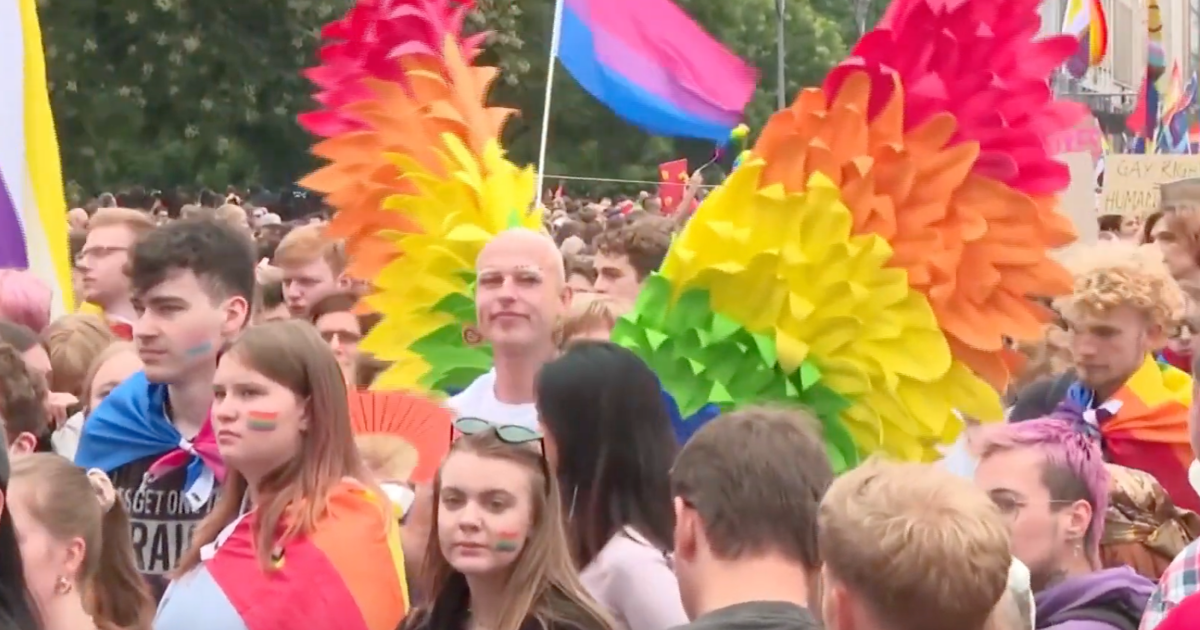Germanys parliament banned the Pride flag. It backfired spectacularly.
Germans turned out in huge numbers for Berlins Christopher Street Day Pride celebration on Saturday, a rebuke to rising far-right anti-LGBTQ+ activists who have cast a pall over many of this years commemorations of the Stonewall Riots and the fight for LGBTQ+ equality.The turnout was also a warning to German lawmakers hoping to assuage far-right voters by dialing back their support of the LGBTQ+ community. Related Pride marches in Germany brace for violence by far-right counter protesters Events have been canceled as threats and attacks by right-wing groups rise. In May, Bundestag President Julia Klckner of the Christian Democrat party announced she would ban the rainbow flag from flying atop Germanys Parliament building for Pride, calling it a political demonstration, according to Le Monde. Insights for the LGBTQ+ community Subscribe to our briefing for insights into how politics impacts the LGBTQ+ community and more. Subscribe to our Newsletter today German Chancellor Friedrich Merz added to the controversy when, in a July interview, he declared that the Bundestag was not a circus tent on which any flag could fly.Thomas Hoffmann, a member of Berlins Christopher Street Day Executive Board, estimated the 2025 crowd for Saturdays Pride march was bigger than in past years.We want to stand up for our rights together here, Hoffmann told the Associated Press.German news agency dpa reported that a right-wing counter-demonstration drew 30 to 50 protesters to Saturdays march. Six people, including the protests organizer, were arrested on their way to the counter-demonstration for alleged weapons and explosives violations, as well as for displaying anti-constitutional symbols, including the Nazi swastika.Police have been vigilant in the face of a concerted anti-LGBTQ+ campaign this year under a banner co-opting the German translation for Pride Month,Stolzmonat, to celebrate straight Pride.The counterdemonstrations are attracting a collection of aggrieved Germans, including neo-Nazis and members of the countrys rising far-right Alternative for Germany (AfD) party, who are using the events as recruiting tools for young, disaffected German youth. More than 200 Pride events are scheduled across Germany this year.Stolzmonatis an alternative that seeks to consciously counter the forced change setting an example of traditional values, family ties and stability in uncertain times,reads a statementfrom AfD in the eastern state of Saxony-Anhalt promoting the anti-LGBTQ+ demonstrations.AfD won a state election for the first time last year and became Germanys largest opposition party in the federal parliament in February.The relative calm at Saturdays massive march was in contrast to another local pride celebration across town in the Marzahn district last month, where the mood was tense.There was a massive police presence to shield us from anti-Pride protests. We only felt safe because the police kept us apart, attendee Georg Schmidt told NPR. Police in Berlin reported an attempted attack at that celebration, while the western city of Gelsenkirchen cancelled its Pride event in May after authorities were tipped off to an imminent threat.The largest protest outside Berlins Christopher Street Day celebration on Saturday was an Internationalist Queer Pride for Liberation rally in the Kreuzberg district of the city, where an estimated 10,000 people joined the pro-Palestinian demonstration, German broadcaster DW reported.The gathering was disbanded due to ongoing unrest, including repeated attacks on law enforcement officers and the shouting of antisemitic slogans, Berlin police posted on X.Subscribe to theLGBTQ Nation newsletterand be the first to know about the latest headlines shaping LGBTQ+ communities worldwide.



